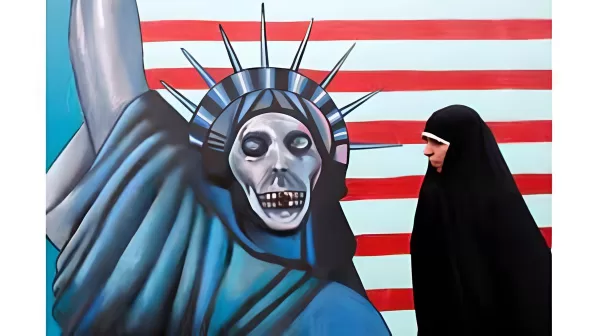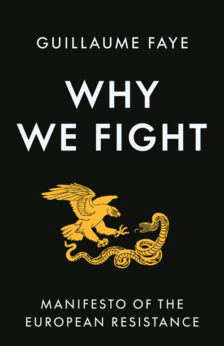In Israel and the Gaza Strip, two disasters occurred one after the other: a Hamas attack on the Jewish state — with numerous civilian casualties, including hostage-taking — and Israel’s retaliatory strikes on the Gaza Strip, far exceeding in cruelty and the number of civilian casualties, primarily women and children. The IDF’s ground operation made the situation even more catastrophic, and the number of dead — including children, women, and the elderly — has increased to unimaginable levels.
Both are gross violations of human rights and crimes against humanity, and cannot be justified in any way. However, the principles of lex talionis (‘an eye for an eye’) applied by Israel led to a real genocide of the population of the Gaza Strip, which was already forced to live in the monstrous conditions of a concentration camp. Hamas committed an act of terrorism; Israel responded with an act of full-scale genocide. Both have placed themselves outside the law and acceptable, humane methods of resolving political conflicts.
But then geopolitics begins. Although the scale of Israel’s crime is much larger, the assessment of what is happening in the Gaza Strip does not depend on this, but on deeper geopolitical regularities. Let us consider them separately from the moral aspect of the problem.
The existing world order is transitional. Today, there is a shift from a unipolar world (formed after the collapse of the USSR and the dismantling of the Soviet bloc) to a multipolar one. The poles of the multipolar world are already becoming quite distinct. These are Russia, China, the Islamic world, and India, with Africa and Latin America approaching. Essentially, these are entirely independent civilisations. The main ones are represented in BRICS, which — especially after the 2023 summit in Johannesburg — unites all these civilisations (the accession of Saudi Arabia, Iran, and Egypt signifies the presence of key countries of the Islamic world; Ethiopia strengthens the African factor, and Argentina complements the core of South American countries). The multipolar world is strengthening its position every day. Western hegemony is weakening.
However, the globalist leadership of the West, and primarily the USA, is striving at any cost to preserve unipolarity, insisting on its full-scale military, political, economic, cultural, and ideological dominance. This is the main contradiction of our era: the escalation of the confrontation between unipolarity and multipolarity. In this context, the main conflicts and processes of world politics should be considered.
It is precisely the desire to weaken sovereign Russia, reasserting itself as an independent pole, that explains the conflict in Ukraine.
At the same time, our country fully realises that it cannot be one of two poles, as was the case during the Soviet era. New civilisations are rising — and Russia sees in them allies and partners in true and equitable multipolarity. The world has not yet realised this, but gradually a multipolar consciousness is growing and strengthening.
The same applies to the issue of Taiwan, which could become (and will someday become) the next frontline between unipolarity and multipolarity — this time in the Pacific Ocean zone.
But events in Israel, the Hamas attack, and the retaliatory genocide of Palestinians by Israel have opened another frontline. Now the West, through its unconditional and one-sided, biased (as in Ukraine) support of Israel, despite the egregious nature of the IDF’s crimes against the civilian population of the Gaza Strip, has entered a phase of confrontation with the entire Islamic world. Thus, another pole has come to the forefront — the Islamic one. In the face of what Israel is doing in the Gaza Strip and in the rest of the Palestinian territories, and considering past injustices against the population of Palestine, driven into ghettos and reservations on their own land, the Islamic world cannot but realise its unity.
The Palestinian cause unites today both Sunnis and Shiites, Turks and Iranians, and opposing sides in internal conflicts in Yemen, Syria, Iraq, or Libya. It directly concerns Muslims in Pakistan, Indonesia, Malaysia, and Bangladesh. It does not leave Muslims living in the USA and Europe, in Russia, or in Africa indifferent. And, of course, the Palestinians of Gaza and the West Bank, despite political differences, are united today in their struggle for dignity.
In recent decades, the USA managed to smooth over the consolidation of Muslims around the Palestinian issue, divide them into groups, and, through force and cunning, coerce them into normalising relations with Israel. But all this policy has shattered into pieces in the last month. Unambiguous support for Israel, even after what it has already done in the Gaza Strip in front of all humanity, forces the Islamic world to step over internal contradictions and enter into direct confrontation with the West.
Israel, like Ukraine, is just a proxy of Western hegemony, self-assured and cruel, not shying away from any crimes, racist speeches, and actions, but the problem is not in them. They are just tools of big geopolitics — the geopolitics of a unipolar world. This was recently explicitly stated by the President of Russia when he spoke about the spiders weaving a worldwide web of enmity and discord. He was referring precisely to the globalists and their colonial tactic of ‘divide and rule’. But if we understand the essence of the strategy of those who are desperately in agony trying to save the unipolar world and Western hegemony, we can consciously build an alternative model of resistance to it, as well as confidently and collectively move towards the creation of a multipolar world.
The conflict in the Gaza Strip (and, more broadly, in Palestine as a whole) is a direct challenge thrown at the entire Islamic world, not at some separate nation — and not even at all Arabs. Essentially, the West has entered into a war with Islam itself. This is well understood by almost all leaders: from Salman bin Abdulaziz Al Saud to Erdogan, from Ayatollah Khamenei to the leadership of Pakistan, from Tunisia to Bahrain, from Salafists and Wahhabists to Shiites and Sufis. Political opponents in Palestine itself, in Syria, Libya, and Lebanon, as well as Shiites and Sunnis, now must uphold their dignity and prove that Muslims are an independent sovereign civilisation that will not allow such treatment.
Erdogan threatened the West with Jihad and recalled the Crusades. This is a very unfortunate comparison. The modern globalist West has nothing in common with Christian civilisation. Many centuries ago, the West broke ties with Christian culture and sided with materialism, atheism, and individualism. Christianity has nothing in common with material science, with the social and economic system of sheer greed, with the legalisation of perversions and proclaiming pathology as the norm, with the willingness to move to a post-human existence. The modern West is an anti-Christian phenomenon, and it carries no cross with it or on itself. Israel — a Jewish and secular state, Western, has nothing to do with Christianity either. Therefore, if the Muslim world does clash with the West, it will not be as with the civilisation of Christ, but as with the civilisation of the Antichrist — Dajjal.







